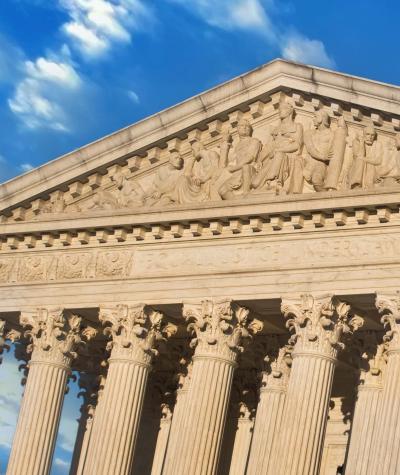Checks and balances are a cornerstone of our democracy and prevent any one person, party or legislative body from abusing power. This morning, the Supreme Court rejected an extreme legal theory that threatened to completely upend that system.
The fringe independent state legislature (ISL) theory at issue in Moore v. Harper would have given state politicians nearly unchecked power to manipulate voting maps and pass state laws that thwart the will of voters by undermining the freedom to vote.
Thankfully, the Supreme Court resoundingly rejected that dangerous theory in a 6-3 ruling, reinforcing the role of state courts in ensuring that voters have an equal voice in our democracy.
In the opinion, Chief Justice John Roberts said the U.S. Constitution’s Elections Clause “does not insulate state legislatures from the ordinary exercise of state judicial review.” That means the law remains as it has been for more than two centuries: state courts and state constitutions can continue to facilitate a more transparent, inclusive and accountable democracy.
But how did the fringe ISL theory make it this far—all the way to the Supreme Court?
In 2021, the North Carolina legislature crafted a gerrymandered congressional map that gave their own political party an unfair advantage in elections. Voters challenged the map at the state supreme court and initially won. Meanwhile, members of the North Carolina legislature asked the U.S. Supreme Court to take up the case, hoping they would embrace the ISL theory.
CLC and eight other organizations spanning the political spectrum filed a friend-of-the-court brief to sound the alarm about how dangerous the ISL theory is and how it could harm democracy.
Fortunately, the Court affirmed the role that checks and balances play in federal elections, which gives voters the chance to have an equal voice in our democracy and elect leaders who will best serve their community.
But while the Supreme Court’s ruling is a victory for democracy, the fight for fair maps in North Carolina and across the country is far from over. CLC will continue fighting for fair maps so voters can feel confident that they choose their representatives, not the other way around.

